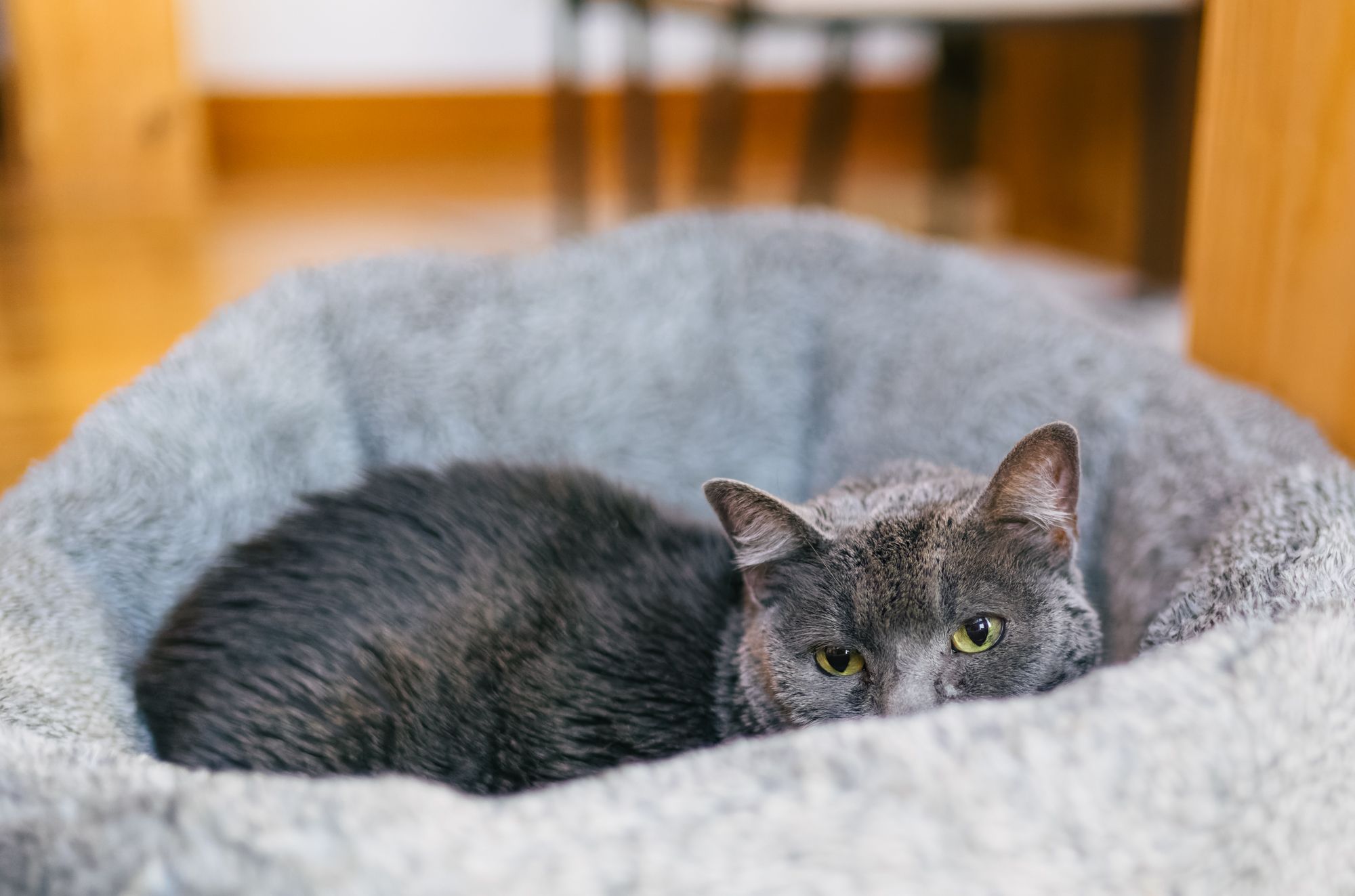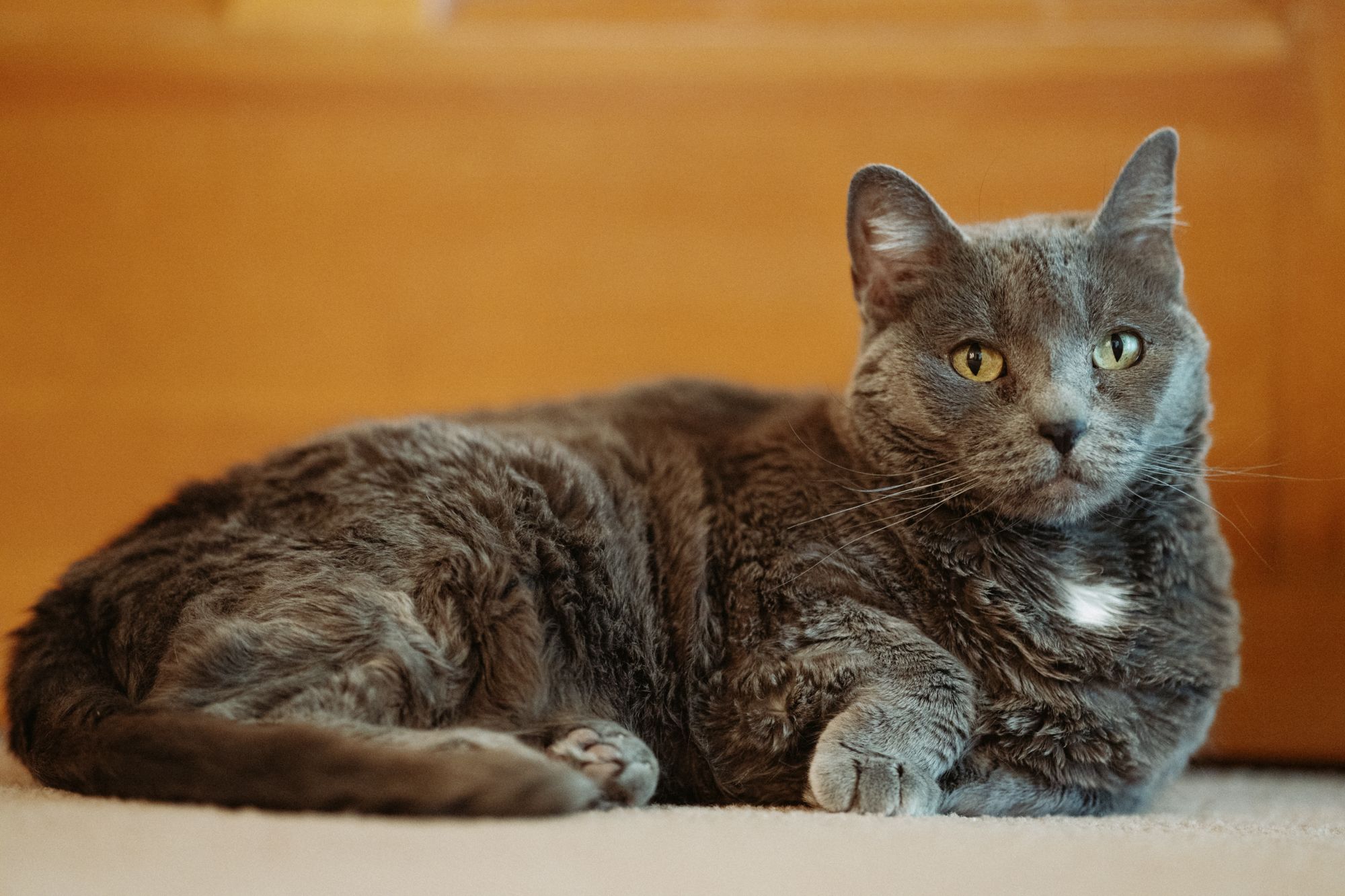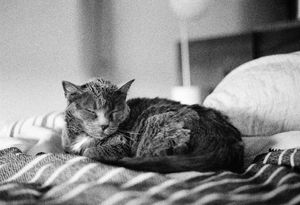It's ironic that you died of a heart that was too large, because anyone who met you would have expected the opposite. You were tough on people. It was difficult to earn your affection, and when you gave it to someone new, it was tinged with a begrudging quality, a warning that it could be withheld again at any time.
But you were never that way with me. I tried to shut you out of the bedroom the first night I picked you up from the shelter, but you sat crying and scratching at the door until I finally relented and let you in. And from that initial surrender, for seven years, you were my shadow across three states, six moves, two flights and four cross-country car trips. You never kept normal cat hours – your sleep schedule mirrored mine, all to spend more time together. You'd immediately adjust to a new place so long as I was there. You never wasted a moment.
And you didn't die of an enlarged heart. Not really. You died because I kept a promise to not let you suffer at the end. The day I decided to let you go was an ice-cold December tempest, wind shaking the home and taunting me that I couldn't keep you safe from everything, at least not any longer. The next day, the day you died, was preternaturally still. You rallied to spend the morning and afternoon with me, and left on your bed – one last skirmish in you – as the sun set over the mountains and your home became a just another house again.

That ending loomed over me for years, ever since a seizure led me to bring you into a cardiologist to get your diagnosis - feline hypertrophic cardiomyopathy, a gradual enlarging of the left chamber of your heart. A whisper of it was there from the beginning in a note on your paperwork from Oakland Animal Shelter – a small murmur detected, shy, sweet, scared. It turned into four years of anxiety, a constant worry that I'd leave the house and return to find you gone or worse, struggling with a painful blood clot with no remedy. But you battled and beat the odds – most cats last only a year from diagnosis; after every echocardiogram, the doctors would express surprise that you still were around.
But there was no beating this. There was no cure, only treatments that could prolong the inevitable – a quarter tab of atenolol, a quarter tab of clopidigrol, a half tab of benazepril, each carefully portioned with a cheese knife and hid inside a gel cap, covered in Gerber baby food and then flicked into your mouth, once a day. And when one final scan showed a clot was inevitable, that the treatments could buy no further time, I couldn't let you reach that bitter end. You gave me one more good day and I held you as you went, as breaking as that was. I couldn't waste that last moment.
It's just so hard. I thought I'd sense more of you after you left – catch you in the corner of my eye, or hear a noise somewhere in the house. But all I can think is that you were here for as long as you could be, and now you're needed somewhere else. And I guess I am, too.
I didn't want this to be solely about loss, but maybe that's the perfect tribute. Loss and sadness are proof that you felt something strongly, that you were unafraid to love something or someone. I've always been skeptical – maybe afraid – of strong emotions, but you wiggled your way past those defenses. And while the loss feels enormous right now, it's tempered by how valuable those seven years together were, how much you helped me and knowing I did all I could to help you.
I'll miss you, Lexie. You come back to me, OK?

